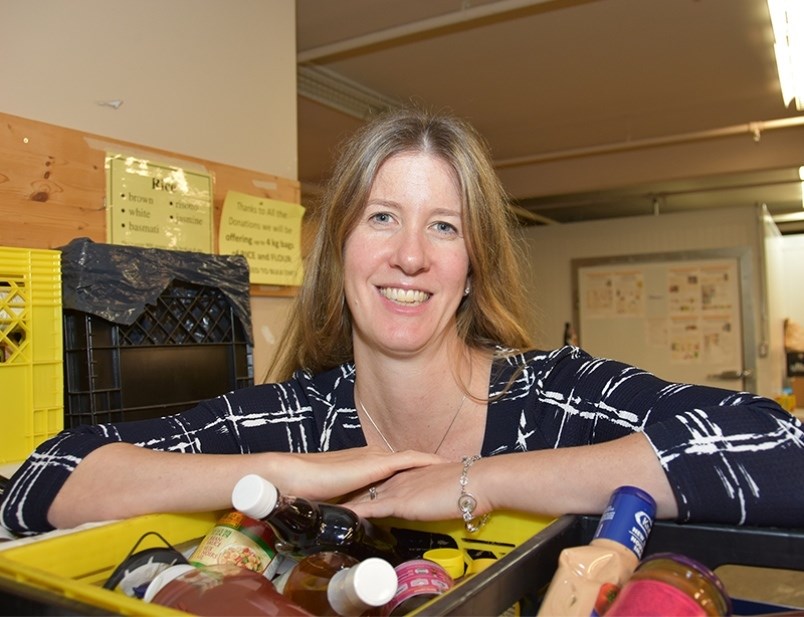Economic pressures associated with the COVID-19 pandemic is leading to a sharp uptick in food bank usage in the Tri-Cities.
According to Share Family and Community Services, the number of households who received support from the food bank last month jumped 12.5% to 783 and a total of 1,487 food hampers were provided, feeding 2,109 people.
And with COVID-19 case numbers rising dramatically in recent weeks and fears of more restrictive orders from the provincial health officer, demand is expected to rise, said Share CEO Claire MacLean.
“We continue to see a steady number of people accessing the food bank, and we expect that as the pandemic continues, and as other forms of government support start to end, this need will only increase,” she told the Tri-City News. “We have seen an ongoing need across our newcomer and refugee community members, and we are working hard to ensure they are supported.”
For many in the community, the food bank is essential.
MacLean said Share staff and volunteers have been working diligently to ensure they can operate the service without disruption, despite the current public health crisis.
She added the pandemic has disproportionately impacted people who were already struggling, a trend the organization has seen across all of its programs.
“The negative impact this pandemic is having on people’s mental health, their family dynamics, as well as their employment and economic stability, are felt most sharply among the vulnerable members of our society,” MacLean said.
Getting food to people in need has been a struggle during the pandemic, said Craig Savage, a community coordinator with CityReach Care Society.
His organization partnered with Eagle Ridge Bible Fellowship to offer bagged lunches two times a week at Lions Park throughout the summer, but has since started bringing the food directly to places where homeless people are known to congregate.
They are also doing a weekly hot meal to go out of Friendship Baptist Church in Coquitlam, he added.
“It is walking distance from 3030 Gordon shelter, and also closer to the areas where some people are camping,” Savage said.



